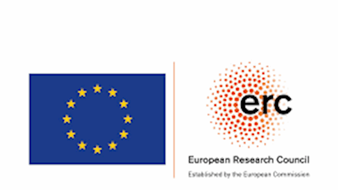An interdisciplinary and international project to rethink the science of criminal governance
Project Overview
Criminal groups such as mafias, large gangs and other criminal organizations are an economic threat of vast proportion. Criminal groups’ harm is however not restricted to the economy. They also exert political authority and governance in the territories where they operate, embedding themselves in the community’s social fabric. Despite substantial hardships, communities rarely oppose criminal groups or cooperate with legal authorities against them.
Social scientists describe this phenomenon by referring to ideological codes such as omertà (law of silence), anti-snitching norms or the code of the street that would prevent some communities from collaborating with, or reporting criminal groups to the police. However, psychological evidence indicates that authority cannot be grounded only in transactional or coercive relationships. Whereas institutional weakness may provide a space for criminal groups to arise, it cannot explain how they sustain authority over time.
The project ‘SecretPower_ERC’ will pioneer a new multimethod approach addressing how the legitimization of criminal governance is fostered by ideologies, values and identities, and their interplay with macro-level factors. SecretPower_ERC will transform the scientific understanding of criminal governance and provide evidence for substantiating policy recommendations and educational interventions.
For updates about the project, please follow @SecretPower_ERC or email Dr Giovanni Travaglino at giovanni.travaglino@rhul.ac.uk
Aims & Duration
The project will transform current understanding of criminal governance and individuals' perception of authorities more in general, with a strong potential of interest to policy-makers. It will employ a combination of methods never used before to investigate criminal governance producing quantitative multilevel, experimental and longitudinal evidence.
The project will last five years.
Structure
SecretPower_ERC is structured in three work-packages (WP).
A preparatory-WP will create a new measure to capture individuals’ appraisal of criminal governance.
In WP-2, the new measure will be used for gathering quantitative evidence in three countries with a solid presence of the state and known instances of criminal governance: Italy, the UK and Japan.
The project will use extensive population surveys, focusing on a cross-section of geographical subunits within countries to examine the interplay between individual-, area- and structural-level factors. In addition, experimental studies will examine the factors that help sustain the legitimacy of criminal governance across countries.
Finally, in WP-3, longitudinal studies will focus on adolescence, a crucial period for the formation of attitudes toward authorities. The longitudinal studies will be conducted in communities with high criminal governance activity and will investigate the within-individual dynamics predicting the legitimization of both legal and criminal governance.
Research Team
The project’s principal investigator is Dr Giovanni Travaglino (Royal Holloway, University of London). New research will be formed in the course of the project to tackle CrimGov’s research questions.
In addition, interdisciplinary and international advisory board of senior research scholars with complementary expertise will assist the PI during the project’s different stages. Additional information will be provided soon.
Funder



The project has been awarded an European Research Council – Starting Grant (ERC-StG) and the overall funding is €1,499,818.00.





















